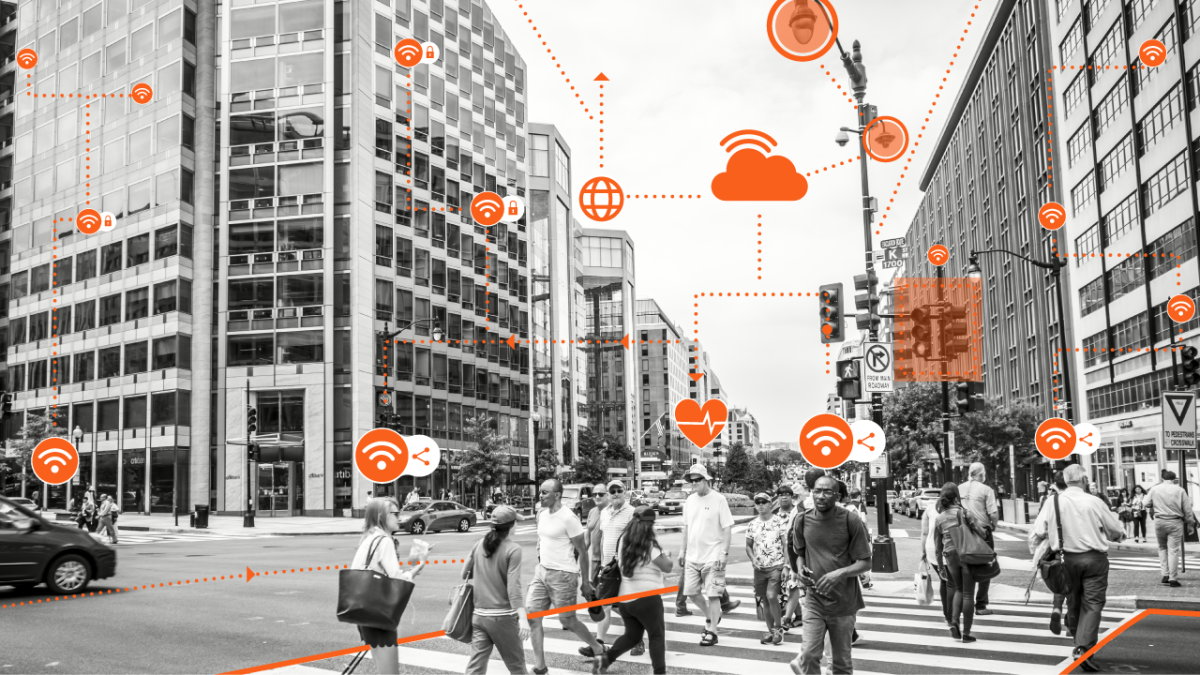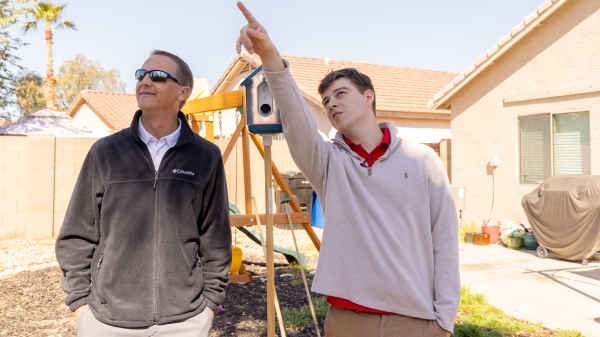$3M grant supports education and training on smart cities

A new project at ASU, “Citizen Centered Smart Cities and Smart Living,” aims to take an interdisciplinary approach to understanding and developing smart cities with individual citizens at the forefront of attention.
Every time we turn on the news, log in to social media or visit a store, we are inundated with references to smart technologies. Now, even whole cities are being labeled as “smart,” but what does that mean for the people who live in them? A new $3 million grant from the National Science Foundation (NSF) will help Arizona State University launch a graduate research training program focusing on just that — citizen-centered smart cities.
The grant is a part of the NSF’s Research Traineeship (NRT) Program, which was designed to encourage the development and implementation of bold, new and potentially transformative models for STEM graduate education training. ASU’s project will launch with 24 master’s and 14 doctoral students.
“Our project will prepare students to become the engineers, scientists, entrepreneurs and policymakers who lead this growing field and shape the future of smart cities in a human-centric way,” said Sethuraman “Panch” Panchanathan, principal investigator on the project and director of ASU’s Center for Cognitive Ubiquitous Computing.
The project, “Citizen Centered Smart Cities and Smart Living,” aims to take an interdisciplinary approach to understanding and developing smart cities with individual citizens at the forefront of attention. Multiple co-principal investigators bring unique perspectives to the topic to answer a wide range of questions:
- Ann McKenna, director of the Polytechnic School, brings expertise in engineering education.
- Gail-Joon Ahn, a professor in the School of Computing, Informatics, and Decision Systems Engineering, focuses on cybersecurity.
- Ram Pendyala, a professor in the School of Sustainable Engineering and the Built Environment, specializes in transportation systems.
- Cynthia Selin, an associate professor in the School for the Future of Innovation in Society, contributes her expertise in ethics and technology in citizen engagement.
“What does a citizen need from a smart city? How could they benefit from a smart city? And how can they engage better in smart cities? There is a lot of focus on citizen awareness, engagement and education as part of this project we’ve put together,” said Troy McDaniel, an ASU assistant research professor who is providing expertise on human-computer interaction, assistive technology, accessibility and inclusion to the project.
One of the main goals for the project includes successful recruitment, retention and graduation of STEM students from diverse backgrounds, including underrepresented minorities, women and individuals with disabilities.
Students will engage in cross-disciplinary courses and research projects, immersive internships with external partners, service learning opportunities, entrepreneur education, and communication skills training. They will have access to Sun Devil Stadium, a recently converted smart stadium, and other local test beds available for research.
One other goal for the project is career placement and creation of new career paths in smart cities related positions for STEM graduates. Lastly, the project will strive to create community, national and global impact through sharing research findings and project outcomes.
The NSF selected only 17 institutions across the U.S. to participate in this highly competitive program, including Stanford University, UCLA and University of Texas, Austin.
“This funding provides us a tremendous opportunity to advance several of ASU’s fundamental values, including our commitment to access, hands-on experiential learning, interdisciplinary collaboration and an entrepreneurial mindset,” said Panchanathan, who is also executive vice president of the ASU Knowledge Enterprise and chief research and innovation officer. “This approach allows us to cultivate great ideas and solve real-world challenges.”
Written by Madison Arnold
More Science and technology

Making magic happen: Engineering and designing theme parks
The themed entertainment industry is widespread and diverse, encompassing everything from theme parks to aquariums, zoos, water…

AI-equipped feeders allow ASU Online students to study bird behavior remotely
ASU Online students are participating in a research opportunity that's for the birds — literally. Online Bird Buddies is a…

National Humanities Center renews partnership with Lincoln Center for responsible AI research
The National Humanities Center has announced that Arizona State University's Lincoln Center for Applied Ethics is one of four…